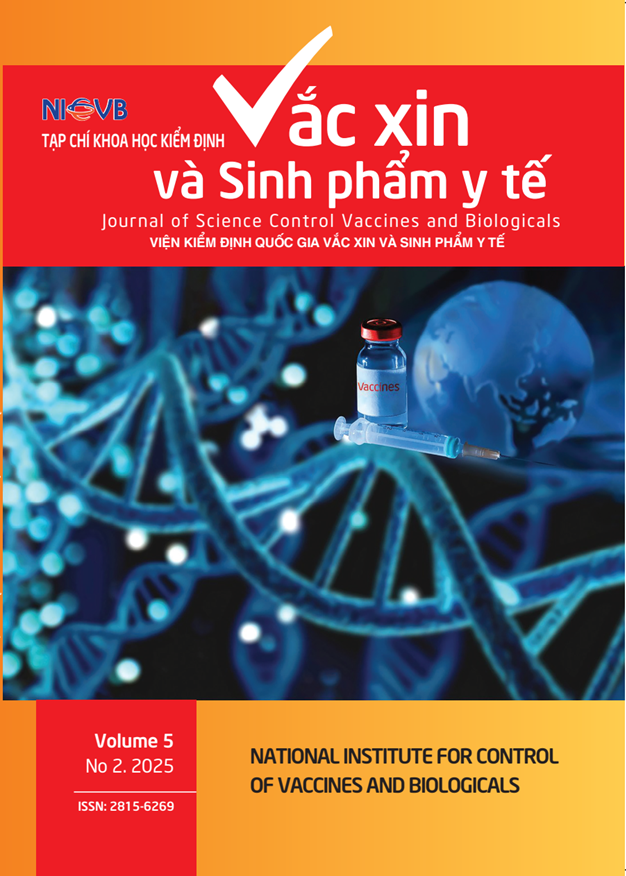EVALUATION OF THE INFLUENCE OF INJECTION SITE ON GUINEA PIGS IN SPECIFIC SAFETY TESTS FOR DPT, TT VACCINES
DOI:
https://doi.org/10.56086/jcvb.v2i5.212Keywords:
Guinea pig, specific safety test, NICVBAbstract
The specific safety test on guinea pigs is conducted to confirm the absence of residual toxins and the reversion to toxicity of the diphtheria and tetanus components in vaccines. At the National Institute for Control of Vaccines and Biologicals (NICVB), approximately 500 guinea pigs are used annually for this test. However, related documents do not specify the exact injection site, only stating that the injection is subcutaneous. Moreover, studies on the influence of injection site on post-injection reactions in guinea pigs remain limited. This study was conducted to evaluate the impact of injection site on guinea pig health, based on physical manifestations during the observation period and necropsy findings at the end of the experiment, with the aim of proposing a more optimal injection site for this test. A cross-sectional descriptive experimental design was used. The study identified and compared physical responses in two groups of guinea pigs injected with TT or DPT vaccines at two different subcutaneous sites: the inner thigh and the shoulder-neck area. The results indicated no significant differences in weight gain between the experimental and control groups. Non-specific symptoms were fewer in the experimental animals compared to the controls. Subcutaneous injection at the shoulder-neck area was found to be more suitable than the inner thigh site.







